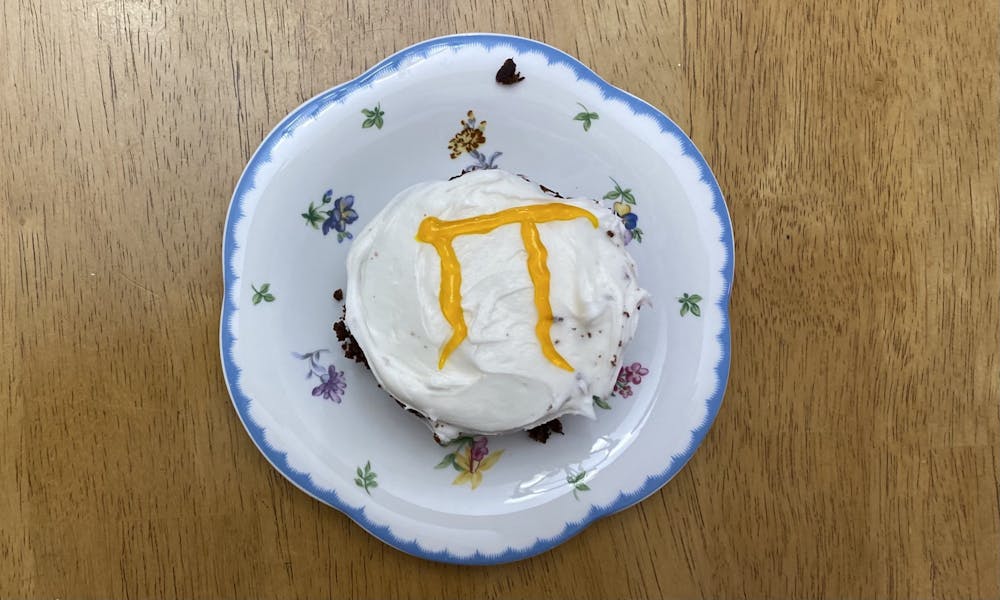A person can look at pi forever or they can eat pie in seconds, but for students whose passion is math, Pi Day is a great way to celebrate one of the most studied constants in the field with some homemade — or store-bought — pie.
People celebrate Pi Day every year on March 14 to represent the first three digits of 3.14. This day honors the math constant “pi,” which is represented by the Greek symbol π. Pi is calculated by dividing the circumference of a circle by its diameter and goes on for infinity. Because of that, mathematicians use the Greek symbol to encapsulate the transcendental number.
The enthusiasm surrounding Pi Day is the same enthusiasm felt by people who have decided to dedicate their life to math, like Nick Tapp-Hughes, a senior studying math and computer science and the president of the Carolina Math Club.
“I love math because I think it captures a lot of the natural beauty of the universe," Tapp-Hughes said. "It's also very important for the scientific study of the natural world. It gives us a very nice language to describe the world. Math scratches an itch for me, I would say."
Austin Blitstein, a junior studying physics and math and the treasurer of the Society of Physics Students, said he enjoys the challenge of learning new steps to each problem.
“Math, I appreciate just for how it's built upon just one logical conclusion after the other," Blitstein said. "Everything just naturally follows, yet at the same time, you need some creative thinking to actually bridge the gap from the next to the next step, since it's not immediately obvious what the next step is in the first place. And then I think physics comes in and ties in meaning to why we're taking these steps in the first place."
Blitstein also said he finds it interesting that pi can show up almost anywhere in the world we live in.
"It appears a lot in nature too, because I guess the universe as a whole, there's a lot of problems that can be solved that have to deal with cylindrical or spherical symmetry," he said. "And because of that, pi just naturally shows up the world around us. So it's a very interesting number."
Xiao-Ming Porter, the current social chairperson of Visibility in Physics at Carolina and a math and physics double major, explained why they get excited about both.



